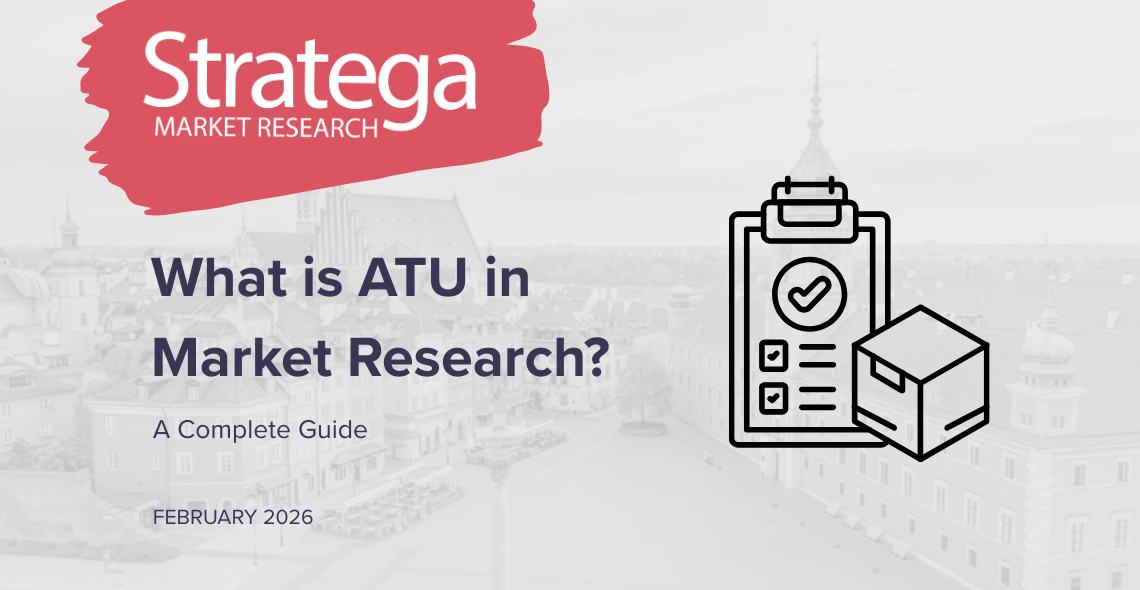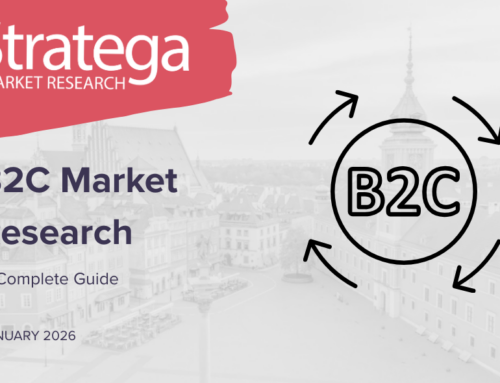Focus groups
Characteristics
Focus group discussion is one of the most common market research methods. Its qualitative nature means that researchers can dig deeper into respondents’ perceptions, opinions, feelings about the studied issues than in the case of, e.g. online surveys.
Focus groups usually include 4-6 respondents who are gathered together to discuss research materials or questions. A moderator is equipped with a structured or semi-structured discussion guide that helps him or her collect the most valuable insights. The interviews might last from 1.5 to 3 hours, depending on the study characteristics and needs. Sometimes, they are observed by the researchers through viewing mirrors (like the ones we have in our viewing facility in Warsaw) who can add some questions or comments during the interview. Also, there is a possibility of including a simultaneous translator who helps clients who do not speak the local language to receive first-hand information as soon as it is expressed by the respondents.
Focus groups can be conducted face-to-face in a market research facility or they can be organized online as well. This occurred a great asset in the time of COVID-19 pandemic (read about online methods we used during this time here).
Focus groups advantages and disadvantages
It is worth considering the most important criteria for decision making as regards IDIs market research: costs, logistics, and insights.
Considering costs and logistics, there is one obvious advantage of focus groups – we gather a few respondents in one place at one time. This usually means less trouble with logistics when booking simultaneous translators, moderators, facilities, since they all need just to show up once.
If it comes to research results, group meetings stimulate more lively, spontaneous, insightful discussions. Hearing one another, respondents open more about some of their opinions, recall more things, provide more arguments when faced with other people’s opinions. Also, more people involved in the discussion = more issues brought up spontaneously!
At the same time, scheduling interviews with hard-to-reach, busy respondents is difficult. Scheduling them to meet on one particular date might become a Herculean task! Therefore, the decisions on the methodology shall always include the specificity of the target group.
Individual in-depth interviews
Characteristics
Individual in-depth interviews (so-called IDIs) include only one respondent during face-to-face or remote (phone/online) meeting. What is great about IDIs is the fact that they offer quite a lot of flexibility. When conducted face-to-face, they can be organized in a facility, in the respondent’s house or office – as long as the place offers conditions for private conversations, it might be considered as a potential research venue.
As a rule of thumb, such interviews are shorter than focus groups – 45-60 minute interviews are the most common. Yet, it also happens to conduct shorter or longer ones. It depends on the particular study and clients’ needs, of course.
Individual in-depth interviews advantages and disadvantages
IDIs are usually shorter and offer more flexibility as regards the timing of each interview, which is way more comfortable for respondents. Also, their time engagement is frequently shorter which allows for a lower cost per respondent. Of course, again, it depends on the target group characteristics.
Also, individual interviews offer a chance for more intimate discussions, thus, it is possible to cover more sensitive issues. What’s more, frequently it is possible to ask more questions. After all, there is only one person to share his or her opinions or perceptions.
On the other hand, it requires more meetings to gather as many different opinions as during focus groups. This also means more booking as regards facility, moderator, simultaneous translator, etc. The more people involved in one interview, the more work when there are many of them.
Focus groups or in-depth interviews – which are better?
It depends.
When deciding on the methodology, it is worth considering the budget, time frame, research goals and topics, target audience, etc. Stratega offers guidance on the research strategy, design of the tools as well as their translation and cultural adaptation. Thus, if you face any hard time choosing the best options for your research, contact us – we’ll be more than happy to help!





